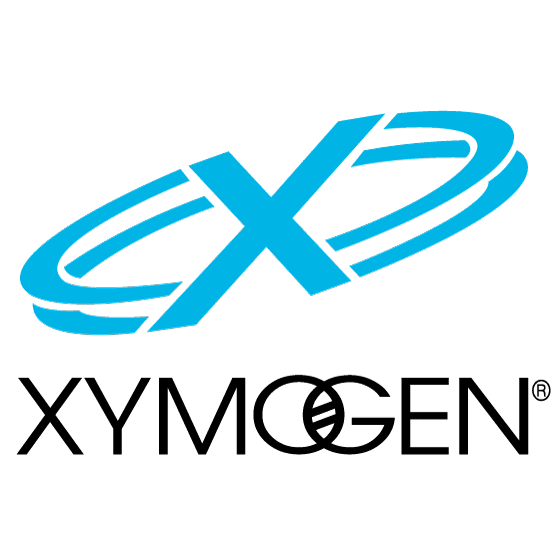The human brain is the human body's control center. It is a fundamental structure in the nervous system, which also includes the spinal cord and a system of nerves and neurons. The nervous system controls every structure and function in the human body. When the brain is damaged, it can ultimately affect the function of the nervous system, including memory, sensation, and even personality. Brain disorders include any health issues which affect the brain. This includes health issues due to:
- genetics
- illness
- trauma or injury
What are the Different Types of Brain Disorders?
There is a wide array of different brain disorders which can vary tremendously in symptoms and grade of severity. Below, we will demonstrate the different types of brain disorders and discuss several of the most common types of brain disorders.
Brain Injuries
Brain injuries are generally caused by blunt trauma or injury. Trauma or injury can damage brain tissue, neurons, and nerves. This damage affects the brain's capacity to communicate with the rest of the human body. Several brain injuries include:
- hematomas
- blood clots
- contusions or bruising of brain tissue
- cerebral edema or swelling inside the skull
- concussions
- strokes
Common symptoms of brain injuries include:
- vomiting
- nausea
- speech difficulty
- bleeding from the ear
- numbness
- paralysis
- memory loss
- problems with concentration
Furthermore, other common symptoms you may develop include:
- high blood pressure
- low heart rate
- pupil dilation
- irregular breathing
Depending on the type of brain injury, treatment may include medication, rehabilitation, or brain surgery. Approximately half of the people with acute brain injuries require surgery to remove or repair damaged tissue and to relieve stress. Individuals with mild brain injuries may not require any treatment past medication. Many people with brain injuries may also require:
- physical therapy
- speech and language therapy
- psychiatry
Brain Tumors
Occasionally, brain tumors can develop and they can become quite dangerous. These are known as primary brain tumors. In other instances, cancer from other regions of the body can spread into the brain. These are known as secondary or metastatic brain tumors. Brain tumors may be categorized as either malignant (cancerous) or benign (noncancerous). Healthcare professionals also categorize brain tumors as grades 1, 2, 3, or 4. Higher numbers indicate more severe cancers.
The main cause of the majority of brain tumors is largely unknown. They can occur in people of all age. Symptoms of brain cancers generally depend on the size and location of the tumor. The most common symptoms of brain tumors include:
- headaches
- seizures
- tingling sensations or numbness in the arms or legs
- nausea
- vomiting
- changes in personality
- difficulty with movement or balance
- changes in hearing, speech, or vision
The type of treatment you'll receive for the brain tumors depends on a variety of different factors, such as the size of the brain tumor, your age, and your overall health and wellness. The main types of treatment for brain tumors include:
- chemotherapy
- radiation therapy
- surgery
Neurodegenerative Diseases
Neurodegenerative disorders cause the brain and the nerves to gradually deteriorate as people age. They can affect an individual's personality and cause confusion. They are also able to destroy the brain's tissue and nerves. Brain disorders like Alzheimer's disease may develop over time with age. It can slowly impair memory and thought processes. Other diseases, such as Tay-Sachs disease are genetic and can develop at any age. Common neurodegenerative diseases include:
- Huntington's disease
- ALS (amyotrophic lateral sclerosis), or Lou Gehrig's disease
- Parkinson's disease
- all types of dementia
Several of the most common symptoms of neurodegenerative diseases include:
- Memory loss
- forgetfulness
- apathy
- anxiety
- agitation
- a loss of inhibition
- mood changes
Neurodegenerative diseases can ultimately cause irreversible damage and symptoms generally have a tendency of becoming worse as the disease progresses. New symptoms can also continue to develop over time. Unfortunately, there's no treatment for neurodegenerative diseases, however, treatment can help improve symptoms. The treatment goal for these health issues is to reduce symptoms and maintain quality of life. Treatment often involves the use of medications to control symptoms.
Mental Disorders
Mental disorders, or mental illnesses, are a wide variety of health issues which affect behavior patterns. Much like the brain disorders previously mentioned, symptoms can also vary. Several of the most commonly diagnosed mental disorders are:
- depression
- anxiety
- bipolar disorder
- post-traumatic stress disorder (PTSD)
- schizophrenia
The symptoms of mental disorders can vary based on the health issue. Different people can experience exactly the same mental disorders differently. Make sure to speak with a healthcare professional if you notice any changes in your behavior, thought patterns, or mood. The two major types of treatments for mental disorders are medication and psychotherapy. Different treatments work better for different health issues. Many individuals find that a combination of both is best.
If you believe that you may have a mental disorder, it's important to speak to a healthcare professional for diagnosis in order to determine which treatment program is suitable for you. There are many resources available to treat mental disorders.
What are the Risk Factors for Brain Disorders?
Brain disorders can affect anyone, however, the risk factors can ultimately vary for different types of brain disorders. Traumatic brain injury is most common in children under 4 years old, young adults between 15 and 25 years old, and adults 65 and older. Brain tumors may affect any individual at any given age. An individual's risk for developing brain disorders generally depends on the individual's genetics and their vulnerability to environmental risk factors, such as radiation.
Older age and family history are the most important risk factors for neurodegenerative diseases. Mental disorders are extremely common. About 1 in 5 American adults have experienced a mental health issue. Your risk may be greater if you:
- have a family history of mental illness
- have or have had traumatic or stressful life experiences
- have a history of misusing drugs or alcohol
- have or have experienced a traumatic brain injury
There are a variety of treatment approaches which can help improve brain disorders. The outlook for people with brain disorders depends on the type and severity of the brain disorder. Several of these health issues can be easily treated with the utilization of medication and other therapy methods and techniques. Other brain disorders, such as neurodegenerative diseases and several types of traumatic brain injuries have no cure, however, treatment approaches can help improve symptoms. - Dr. Alex Jimenez D.C., C.C.S.T. Insight
The purpose of the article above is to discuss the different types of brain disorders, including neurodegenerative diseases. Neurological diseases are associated with the brain, the spine, and the nerves. The scope of our information is limited to chiropractic, musculoskeletal and nervous health issues as well as functional medicine articles, topics, and discussions. To further discuss the subject matter above, please feel free to ask Dr. Alex Jimenez or contact us at 915-850-0900 .
Curated by Dr. Alex Jimenez
Additional Topic Discussion: Chronic Pain
Sudden pain is a natural response of the nervous system which helps to demonstrate possible injury. By way of instance, pain signals travel from an injured region through the nerves and spinal cord to the brain. Pain is generally less severe as the injury heals, however, chronic pain is different than the average type of pain. With chronic pain, the human body will continue sending pain signals to the brain, regardless if the injury has healed. Chronic pain can last for several weeks to even several years. Chronic pain can tremendously affect a patient's mobility and it can reduce flexibility, strength, and endurance.
Formulas for Methylation Support

XYMOGEN’s Exclusive Professional Formulas are available through select licensed health care professionals. The internet sale and discounting of XYMOGEN formulas are strictly prohibited.
Proudly, Dr. Alexander Jimenez makes XYMOGEN formulas available only to patients under our care.
Please call our office in order for us to assign a doctor consultation for immediate access.
If you are a patient of Injury Medical & Chiropractic Clinic, you may inquire about XYMOGEN by calling 915-850-0900.
For your convenience and review of the XYMOGEN products please review the following link.*XYMOGEN-Catalog-Download
* All of the above XYMOGEN policies remain strictly in force.






